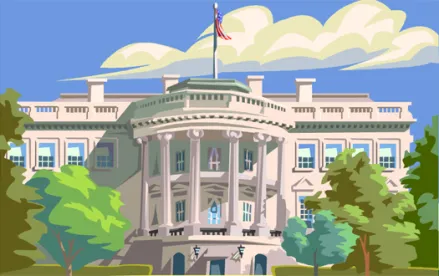On October 9, 2019, the President issued two executive orders that require agencies to formally provide official guidance before enforcing any new jurisdiction or legal standards. In other words, agencies cannot take novel legal positions in civil enforcement actions or adjudications without first formally notifying the public. Building on the 2017 Sessions Memorandum and 2018 Brand Memorandum, discussed previously, the Executive Order on Promoting the Rule of Law Through Transparency and Fairness in Civil Administration Enforcement and Adjudication, and the Executive Order on Promoting the Rule of Law Through Improved Agency Guidance Documents, are the Administration’s latest steps in requiring agencies to clearly and officially provide legal guidance and standards before holding regulated parties accountable.
The Executive Order on Promoting the Rule of Law Through Transparency and Fairness in Civil Administration Enforcement and Adjudication requires agencies to (among other things):
-
Notify the public before enforcing agency interpretations of statute and regulations or new claims of jurisdiction. The Executive Order prohibits agencies from taking administrative enforcement actions, adjudications, or making other determinations with legal consequences, by applying standards of conduct that have not been publicly stated in a manner that would cause “unfair surprise” regarding penalties or adjudicating past conduct. Thus, an agency may not rely on informal guidance documents as the basis for enforcement actions, it must establish a violation of statute or regulation. Further, agencies first must publish guidance documents on its website (see below) or in full or by citation in the Federal Register before citing a guidance document as its understanding of how a statute or regulation applies to particular circumstances in a civil enforcement action or adjudication. Agencies must also publish, in the Federal Register or on their website, any new or expanded claims of jurisdiction (including those in litigation documents). Such new jurisdiction will only apply to conduct going forward, it cannot be applied retroactively to conduct that has already occurred.
-
Provide an opportunity for regulated parties to be heard and provide a written response. Except in settlement negotiations or certain enumerated circumstances, before an agency takes any action with legal consequences against a person, the person must be afforded an opportunity to be heard regarding the agency’s proposed legal and factual determinations. The agency then must respond and delineate the basis for its action.
-
Cooperate with regulated parties The Order requires agencies to propose procedures to (1) to encourage voluntary self-reporting of regulatory violations by regulated parties in exchange for reductions or waivers of civil penalties, (2) “to encourage voluntary information sharing by regulated parties,” and (3) to “provide pre-enforcement rulings to regulated parties.”
-
Publish and comply with rules of procedure governing civil administrative inspections. The Executive Order also requires agencies to publish and comply with rules of procedure governing civil administrative inspections and requires collections of information to have valid OMB control numbers (without which a respondent is not legally required to respond).
Relatedly, the Executive Order on Promoting the Rule of Law Through Improved Agency Guidance Documents requires agencies to maintain a database of all guidance documents on their websites. The website must note that guidance documents lack the force and effect of law, except as authorized by law or as incorporated into a contract. Agencies must also review their guidance documents and rescind any that no longer should be in effect. The Order also requires agencies to establish regulations providing processes and procedures for issuing guidance documents. Finally, the Director of OMB must issue a memorandum providing guidance on implementing the Order.
In practice, regulated parties no longer will have to be concerned that past conduct could be adjudicated under new or changing legal standards based on informal agency interpretations. By eliminating unfair surprise and providing certainty regarding agency interpretations, regulated parties will be in a better position to comply with statutes and regulations. Regulated parties should welcome this development, as it should eliminate the risk of agencies engaging in any Monday morning quarterbacking and applying new informal interpretations on past conduct.


 />i
/>i

